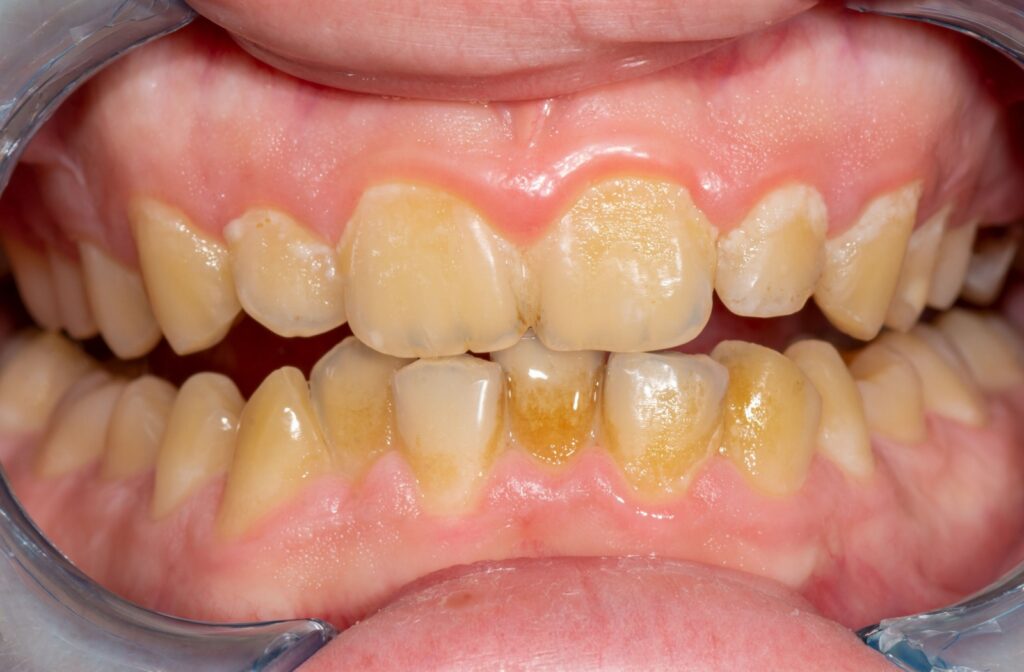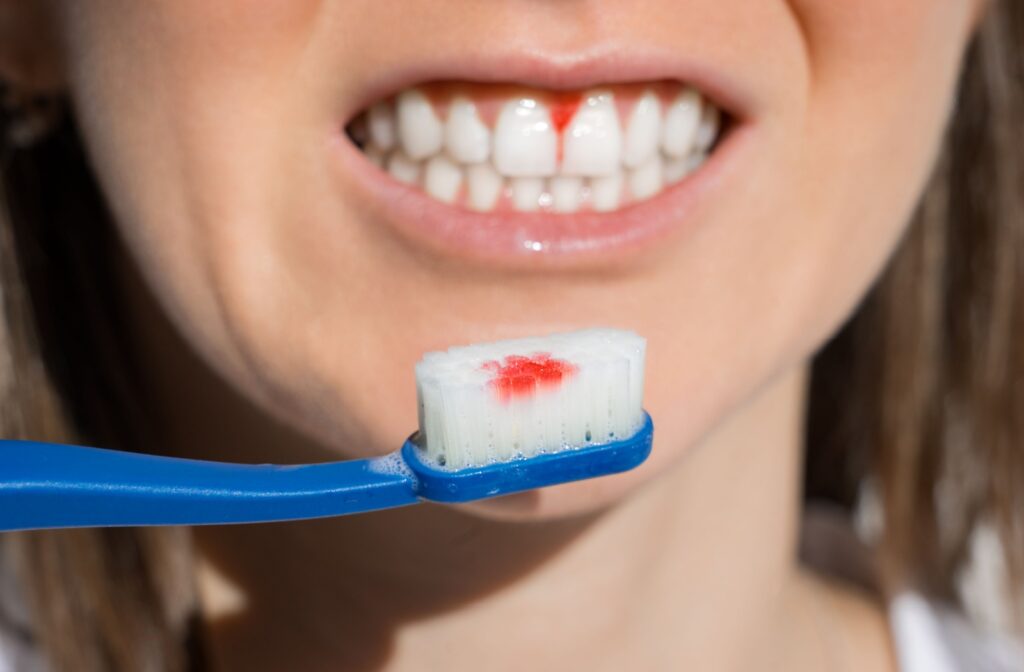Noticing a little pink in the sink after flossing is common. Often, it’s your gums’ way of asking for a bit more care as part of your family’s oral health routine.
In most cases, bleeding gums mean plaque is irritating your gum tissue. In this guide, we’ll explain the common causes and how regular dental exams and cleanings can help. Our goal is to support you and your family in maintaining healthy smiles.
The Main Reason Your Gums Bleed
What Is Plaque?
Your mouth is home to bacteria that form a sticky, clear film on your teeth called dental plaque. Plaque builds up every day, especially after you eat or drink. If you don’t remove it, it can cause problems for your teeth and gums.
How Plaque Causes Gum Irritation
When plaque sits on your teeth for too long, it can irritate the sensitive gum tissue around them. This irritation is an early stage of gum trouble known as gingivitis. One of the first signs of this condition is gums that bleed when you brush or floss.
Other Factors That Cause Bleeding Gums
Your Floss Technique
Flossing too hard can sometimes cause bleeding, especially if you’re just starting. You don’t need a lot of force to clean between your teeth. A gentle touch is all it takes to remove plaque.
The Canadian Dental Association recommends you curve the floss in a C-shape around each tooth and slide it gently below the gumline. This method cleans the tooth surface without being too rough on your gums. It helps you clean effectively without causing harm.
If you’re new to flossing, be patient with yourself and your gums. A little bleeding at first can be normal as your gums get used to the attention. It often subsides within a week or two of consistent, gentle flossing.
Changes to Your Routine or Health
Sometimes, bleeding gums are related to other factors beyond your flossing habits. Life changes can affect your oral health in different ways. These factors can make your gums more sensitive for a short time.
- Starting a new flossing routine
- Hormonal changes during pregnancy
- Some types of medications

Simple Steps for Healthier Gums at Home
Create a Consistent Routine
The most helpful step you can take at home is to be consistent with your oral hygiene. Brush your teeth for two minutes, twice a day, with a soft-bristled toothbrush. This helps remove plaque from the surfaces of your teeth.
For an even better clean, our team agrees with studies showing that flossing once a day before you brush is most effective. This helps loosen food particles and plaque from between your teeth. Your toothbrush can then sweep everything away more easily.
Choose the Right Tools for Your Family
Using the right tools can make a big difference for your family’s comfort and health. A toothbrush with soft bristles is gentle on your gums while still cleaning your teeth well. You can also explore different types of floss—such as dental tape or water flossers—to find what works for you.
How Your Dentist Can Help
Professional Clean & Check-Up
Even with great home care, some plaque can harden into a substance called tartar. Only a dental professional can remove tartar during a professional cleaning. That’s why regular visits are an essential part of protecting gum health.
During a check-up, your dentist can spot early signs of gum irritation. This allows for simple adjustments before a small issue becomes more complex. It’s a proactive way to care for your family’s smiles.
Personalized Advice & Support
Your dental team can demonstrate effective brushing and flossing techniques for you and your children, while also tailoring advice to your family’s unique needs. These personalized tips make it easier to stay on track with your oral health goals.
What Happens if Gums Stay Irritated
If the irritation from gingivitis continues, it can progress to a more serious stage of gum disease. This condition can affect the bones and tissues that hold your teeth in place. Addressing bleeding gums early is a simple way to protect your smile.
Supporting Your Family’s Smiles
Caring for your mouth plays a big role in your overall well-being. Healthy gums support not just your smile but your whole body, making daily oral care an important part of your family’s health.
If you’ve noticed your gums bleeding when you floss, it’s a sign to give them a little more attention. At Montgomery Dental Centre, we’re here to help with personalized advice and gentle care. Contact us today to schedule your check-up and keep your family’s smiles healthy. With the right care, your gums can heal and stay strong for years to come.




